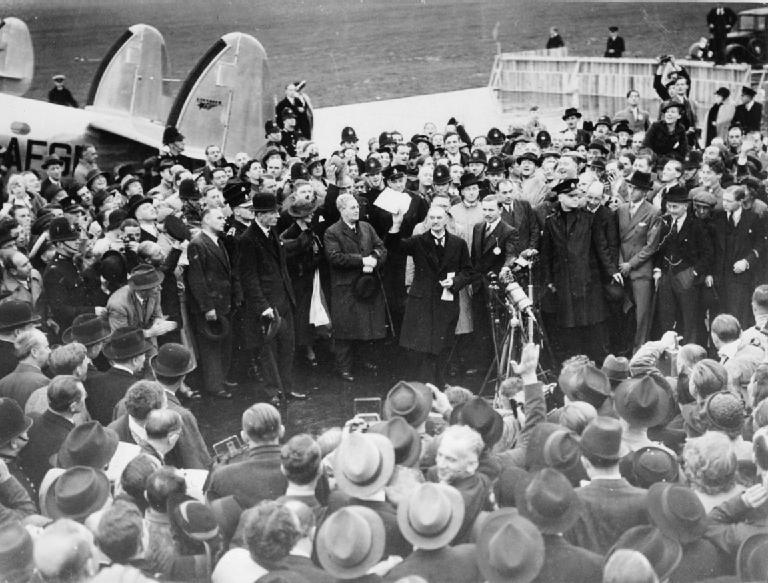Israeli reactions to the nuclear deal with Iran have been herd-like and along party lines. Now that the deal is a fait accompli (notwithstanding the slim possibility of gathering a two-third majority in the US Congress against it), energies would be more productively spent figuring out Israel’s strategy.
There was always something illogical about expecting the United States (let alone Russia and China) to conduct the negotiations with Iran based on Israel’s interests and concerns. In the real world, countries do not conduct their foreign policy to serve the interests of others (unless you believe in The Protocols of the Elders of Zion). Those who express outrage at the US for not fully endorsing Israel’s position match the naïveté with which they accuse President Barack Obama.
There is no known precedent of a country being barred from nuclear capability against its will. Israel, India, Pakistan and North Korea achieved nuclear capability despite the opposition of the US. Saddam Hussein did not rebuild a nuclear plant after Israel’s military strike of 1981 because the war with Iran made it impossible for Iraq to afford a new plant, but Iraq might have restored its nuclear capability over time. In 1989, South Africa voluntarily dismantled its nuclear arsenal, but it was able to build that arsenal despite the opposition and pressures of the international community. Libyan dictator Muammar Gaddafi publicly announced in 2003 that he would end his nuclear program because he feared an American strike after the invasion of Iraq, but had it not been for this (likely unfounded) fear, Libya would have pursued its nuclear program.
Iran, by contrast, has no intention of abandoning its nuclear ambitions. As opposed to Iraq, which bought a turnkey nuclear plant from France, Iran is a highly sophisticated country with advanced nuclear expertise. Bombing Iran’s nuclear sites will not undo Iran’s knowledge. Had America walked away from the talks, the sanctions regime would likely have collapsed because of Russia and China. America was not alone in negotiating with Iran, and therefore the terms of the agreement also depended on the acquiescence of the Russians, the Chinese, and the Europeans. That America could have done better is possible. But to claim that America willingly forwent its leverage over Iran and its negotiating partners defies logic. More significantly, the deal does not take the military option off the table. On the contrary: a post-deal military strike would be more legitimate and more efficient.
It would be more legitimate because if Iran violates the deal America and Israel will have a stronger case (though a UN Security Council resolution is unlikely) to bomb Iran’s nuclear sites. It would be more efficient because the partial and flawed inspection regime will provide Western intelligence with additional and precious information about Iran’s nuclear program.
If Iran does honor the agreement (an unlikely scenario in light of the country’s past behavior), then America and Israel will have extra time to refine their military plans and preparedness. Once Iran becomes a threshold state, Israel will not be helpless thanks to its own (and undeclared) nuclear arsenal. Israel might have to reconsider its policy of nuclear ambiguity. Whether or not Israel revises this policy, it enjoys a strong deterrent vis-à-vis Iran –regardless of the armchair speculations about Iranian rationality or lack thereof.
The ad nauseam comparison to the 1938 Munich Accords is therefore inappropriate. Czechoslovakia was unable to defend itself, and France did not honor the written alliance it had with this country. French Premier Édouard Dalladier was not delusional and he knew that the agreement was a mistake, but he didn’t think France could fight Germany alone. In September 1938, moreover, France and Britain would have defeated Germany, and Hitler would have been overthrown (General Hans Oster and Captain Friedrich Wilhelm Heinz had plotted a coup against Hitler to avoid war). In 1938, military action against Germany would have toppled Hitler and put an end to German aggression. Today, military action against Iran would buy more time but it would not put an end to Iran’s nuclear ambitions.
As for Israel’s lobbying in Congress, it is a lose-lose strategy: if Israel manages to convince two-thirds of Congress to vote against the deal, the other Security Council members will go ahead with the lifting of sanctions anyways, but implementing the deal without America on board will be nearly impossible (not least because the West would lose its five-to-three majority in the joint commission set up by the agreement). Conversely, if Israel fails to build such a majority it will have achieved nothing and will be accused of political meddling.
From Machiavelli to Kissinger, philosophers and statesmen from the realist school share a deep skepticism (or pessimism) both about human nature and about man’s ability to shape reality. Israel’s decision-makers would be well-advised to internalize both sides of the realist coin.



